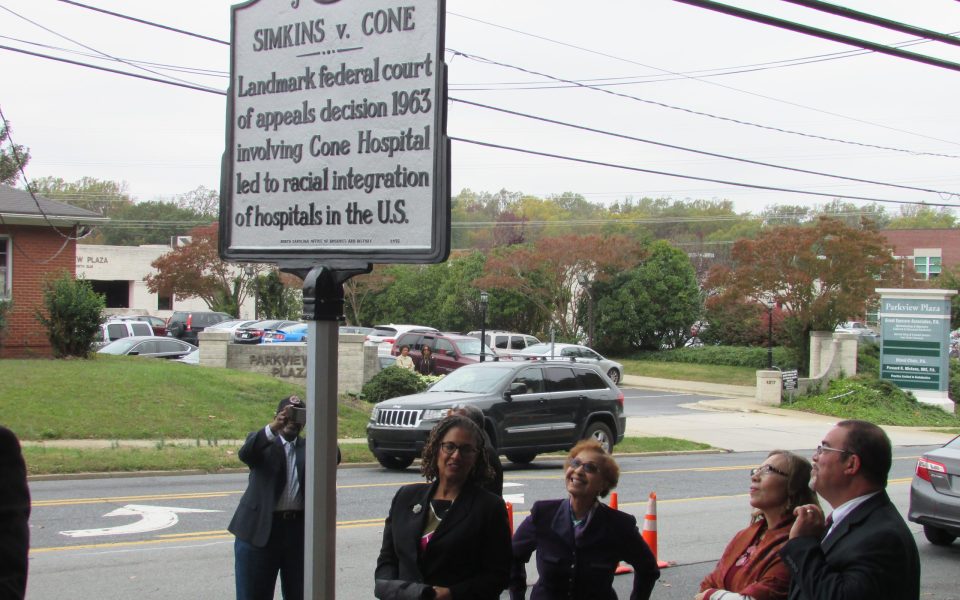In an era when the general state of the world is marked by a sense of continuous deterioration and crisis, and race relations in America probably fall somewhere between stalled-out progress and a precarious slide towards the worse, it’s worth holding up isolated areas of success.
So hats off to Cone Health, the healthcare system that serves Greensboro. (Full disclosure: My wife is employed by Cone.)
Cone Health was recognized by the American Hospital Association as one of five hospital systems named as 2017 Equity of Care honorees. Among several reasons for the honor, Cone was recognized for reducing the disparity between African-American and white lung cancer patients. Specifically, the hospital system reported that during a five-year period, completion of treatment for black patients improved from 64 percent to 96 percent. Notably, the gap didn’t close at the expense of white patients: The completion rate for that cohort improved from 76 to 96 percent.
A recent article in the hospital association’s magazine reveals four interventions responsible for erasing the disparity: “Creating a real-time registry that issues automated alerts for missed appointments and unmet care milestones; tracking race-specific data on treatment adherence; employing a nurse navigator trained in culturally appropriate communication; and holding quarterly staff education sessions on unconscious health bias, gatekeeping and other contributors to treatment inequities.”
Deena Hayes-Greene, an anti-racism trainer and member of the Guilford County School Board, traces Cone Health’s achievements to an initiative by the late community organizer Nettie Coad to bring anti-racism trainings to Greensboro in the 1990s.
“Over 15 years ago a group of trained community members started the Greensboro Health Collaborative to address racial health disparities,” Hayes-Greene wrote in a widely shared Facebook post on Tuesday.
The collaborative’s eventual success came about for five reasons, she said: The group had a sense of urgency, they knew they needed to work together, they acknowledged the work would be long and hard, they recognized they needed to ensure community voices were at the table alongside medical professionals and academics and they “were willing to be uncomfortable and stay unsettled, which equipped us to stay the course.”
If anyone wants to believe there’s nothing that can be done about racial disparities, the progress at Cone Health is proof that it’s not true.
Cone’s commitment to acknowledging and correcting racial disparities also comes from the top. The hospital organization participated at the invitation of the Greensboro Medical Society in the unveiling of a historic marker last November recognizing black physicians — including Dr. George Simkins — who won a landmark lawsuit in 1963 to desegregate the hospital. Before the unveiling, Cone Health CEO Terry Akin publicly apologized to Dr. Alvin Blount, one of the suit’s plaintiffs.
“I’d like to say on behalf of Cone Health to you, on behalf of your colleagues, on behalf of the citizens, who were denied access for that period of time,” Akin said, “I would like to apologize on behalf of Cone Health for the segregation and discrimination that you experienced.”
Join the First Amendment Society, a membership that goes directly to funding TCB‘s newsroom.
We believe that reporting can save the world.
The TCB First Amendment Society recognizes the vital role of a free, unfettered press with a bundling of local experiences designed to build community, and unique engagements with our newsroom that will help you understand, and shape, local journalism’s critical role in uplifting the people in our cities.
All revenue goes directly into the newsroom as reporters’ salaries and freelance commissions.


Leave a Reply